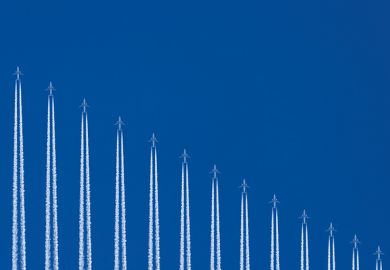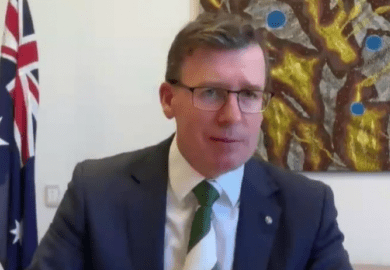In a major boost to Australia’s international education industry, medical regulator the Therapeutic Goods Administration has deemed China’s Sinovac jab a “recognised vaccine” for determining incoming travellers’ immunisation status.
The agency has also given the tick to Covishield, the Indian-made version of the AstraZeneca vaccine. The ruling means that students who have had double doses of either vaccine, along with other recognised jabs such as Pfizer and Moderna, meet the immunisation requirements for entry.
Group of Eight chief executive Vicki Thomson said that the decision would give international students certainty. “This is a major milestone in ensuring a smooth transition for their return to Australian campuses, when the federal and state governments deem it safe to do so,” she said.
“We can now provide clear advice to our international students who, while continuing their studies offshore, have had to rely on the vaccines made available to them.”
Universities Australia chief executive Catriona Jackson said it was “good news” for Australia’s economic recovery, as well as for universities and students. “The decision will bring fresh hope for more than 130,000 students who have been patiently waiting to return to Australia to complete their studies,” she said.
Australia’s biggest state, New South Wales (NSW), has already said it intends to start flying in hundreds of international students before the year’s end. Plans to start mid-year were scuttled by an outbreak of the Delta variant of Covid-19.
NSW’s proposal has been strengthened by prime minister Scott Morrison’s announcement that borders are expected to reopen in November. While the announcement pertains to Australian citizens and residents, it is likely to help soften community alarm about large-scale student arrivals, as international travel – which has been off the cards for most Australians since March 2020 – again becomes the norm.
NSW is likely to be the first jurisdiction where travel restrictions on Australians are lifted, with vaccination levels in the state tipped to reach an 80 per cent threshold in late October.
Attention is now turning to airlines’ capacity to ferry travellers to Australia, and airports’ capacity to receive them. Australian Border Force commissioner Michael Outram said that the smooth flow of foreign students and other travellers now hinged mainly on the efficiency of procedures to test arriving passengers for Covid and validate their vaccination status.
Mr Outram, whose agency oversees airports and seaports, said quarantine duration in particular would influence people’s judgments of the “risk-reward” proposition of travel.
“Testing technologies, confidence in vaccination certificates, rapid antigen testing processes – they’re all part of the mix here,” Mr Outram told a Committee for Economic Development of Australia webinar.
“We are ready to rock and roll in terms of our processes, whether they be manual or automated. We are already building the automated ones.”
Register to continue
Why register?
- Registration is free and only takes a moment
- Once registered, you can read 3 articles a month
- Sign up for our newsletter
Subscribe
Or subscribe for unlimited access to:
- Unlimited access to news, views, insights & reviews
- Digital editions
- Digital access to THE’s university and college rankings analysis
Already registered or a current subscriber?








